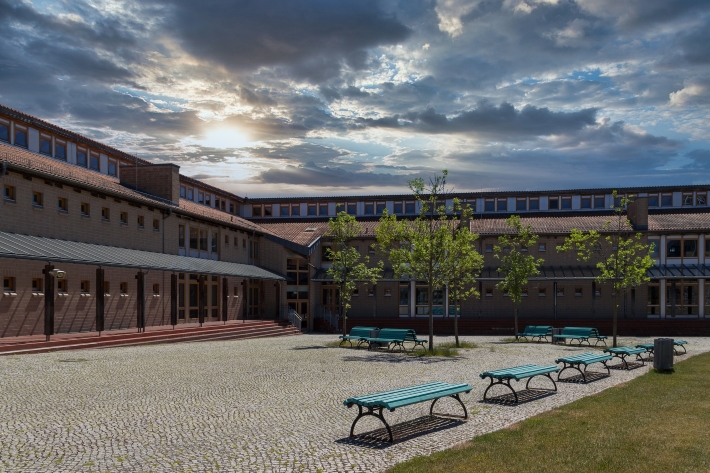Over the next four years, starting next month, the NSW Department of Education will appoint a full-time Student Support Officer (SSO) to every state high school. It's a role that senior UNE social work students have performed within 10 rural and regional schools for the past six years through the highly successful Social Workers in Schools (SWiS) program, funded by the Higher Education Participation and Partnerships Program (HEPPP).
HEPPP aims to ensure that Australians from low socio-economic backgrounds with the ability to study at university have the opportunity to do so. It funded the initial program UNE developed - Schools and University Connect - of which SWiS was one component. The SWiS program was jointly developed by the UNE faculties of Humanities, Arts, Social Sciences and Education (HASSE) and Medicine and Health.
UNE social work students undertaking SWiS placements have played a particularly critical role during recent COVID-19 school closures, providing practical and social support to students and their parents. Catering to the specific needs of student populations, they have hand-delivered learning materials and wellbeing packs, maintained one-on-one online sessions and social chat sites, and introduced mindfulness practices to address student anxiety.
Half of all mental health disorders emerge before the age of 14, and, according to the Education Department, one in seven children and young people experience a mental health issue each year. The department consulted SWiS founder Professor Myfanwy Maple and program officer Scott Gartshore during planning for the SSO roll-out.
Professor Maple said she hopes it will eventually become a national initiative. "Not only does it represent an important investment in the mental health and wellbeing of NSW students; it also provides an important career pathway for qualified social worker graduates," she said.
"Our UNE students have been actively supporting high schools in rural and regional NSW since 2014, helping to ensure that those high school students from low socio-economic backgrounds experiencing distress or poor wellbeing can realise their aspirations. Evidence suggests the SWiS program has helped them to deal with their emotions and to participate more effectively in learning, which enables them to follow tertiary pathways. This has positive benefits for them, their families and communities."
Scott said the SSO appointments validate the success of the SWiS model and provide welcome job opportunities for some of the 70 social workers that graduate from UNE each year. "Demand for our students in schools had already been growing," he said. "During school closures they proved a lifeline for many families, especially those without devices or internet services. Many high school students felt very disconnected and vulnerable and our students were someone they could turn to."
The rapid transition to online learning at home caused considerable angst for many disadvantaged students, sparking concerns about the impact of social isolation on their mental health and education. UNE social work students have stepped in to fill this breach, and not only the high school students have benefitted.
"Some of these are vulnerable school students who move between families or may be in and out of foster care, and have parents who have lost their jobs," Scott said. "Imagine also struggling to supervise your child's education, looking for another job or navigating JobKeeper, speaking to the bank about your finances, and getting dinner on the table. While our social worker students have pitched their wellbeing programs at young people, parents have also been engaged.
"It's vital that we help maintain positive relationships between schools and parents, especially when pupils are experiencing high social anxiety, difficulty engaging with friends and classrooms, and feeling concerned about future ‘crisis’ events."
The Education Department's initial 139 new SSOs (eventually building to 464) will work alongside each school's learning and support team and school counselling service in precisely the same way that UNE social work students have done, delivering targeted programs and mentoring that builds resilience, coping skills and positive relationships.
Professor Maple said relationships, at all levels, are key to offering effective support, even to existing SSOs who might wish to further their own professional development.
"UNE is now discussing learning pathways for those taking on the SSO roles, some of whom may wish to formalise their expertise or upskill through a UNE social work qualification online," she said."This is part of the ongoing strategic relationship we have with the department.
"To me, the success of SWiS has been the collaborations involved: between UNE and the NSW Education Department, our social work students and principals, high school students and the wellbeing teams within schools."


